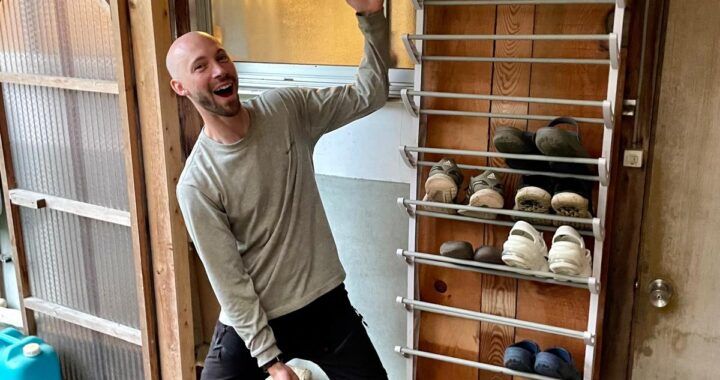At Obubu, it is often said “Many things happen. Please enjoy”. If you are lucky enough to spend time here, you will understand what is meant by this. There are many moments of serenity within the chaos, and it’s important to note this chaos is quite benevolent. Obubu-san has doggedly refused to stop growing and is ever-evolving as a result. I feel that the human spirit of adaptability shines brightly amongst the variety of things that need doing here. Many things happen, and there are many hands and feet, many muscles, many brains, many languages, and many imaginations at play here – all adding value and meaning to this wonderful company and the experiences it shares.
With so much happening all at once however, it is inevitable that some small things accumulate …and maybe some large things as well. Often they accumulate so slowly that you don’t notice until you’re repeatedly stepping over neat piles and negotiating for space amongst various temporary storage areas, small corners, walkways, breezeways, entryways, rear-entrances, overhangs, side-awnings, and… you get the idea. If a person just had the time, all these very usable and slightly dirty items and places could be cleaned, organized, and put to task. Well, maybe not all of the items. So I made the time – or at least, like everyone else who cares for Obubu-san, I did the best I could with the time I had. So without any more ornamental verbosity or further attempts at humor (just kidding, there’s a lot more of that), the following is a rundown of my organizational exploits during my internship. Please enjoy.
My first focus was a rather cluttered engawa. On a daily basis I saw very busy people having to navigate this area, often with full armloads. It was not ideal. Old shoji, obsolete light fixtures, rusty curtain rollers, precariously placed scrap lumber, accented with some opportunistic vines – this is the remnants of a somewhat recent remodel to the co-living space for interns. Beautiful in its own flavor of wabi sabi but not as useful as a clear and hazard-free walkway. Since we’ve mentioned hazard, it’s worth noting the variety of rusty screws strategically jutting out at thigh height, and I would be culpable if I didn’t describe the seemingly dangerous-by-design fascia board at forehead height, armed with the business end of some chicken wire, and adorned with several rusty screws, each of which used, to varying degrees, a combination of blunt-force and puncture attack to kill or wound the unwary enemy. Tread carefully, friend, tread carefully.
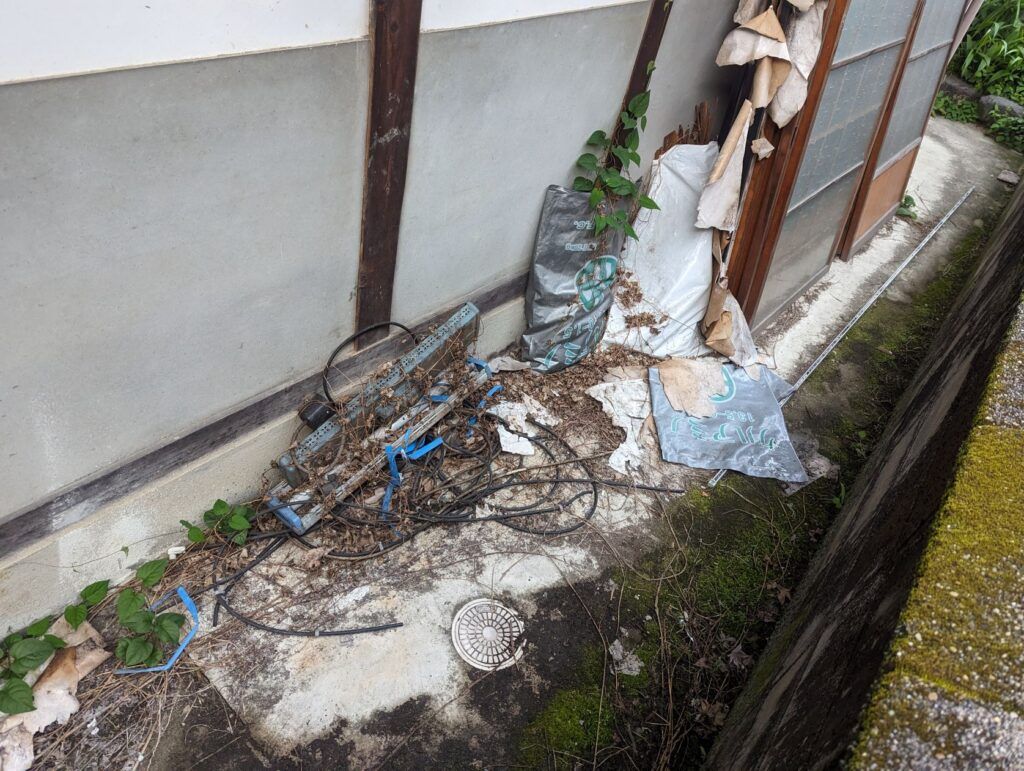
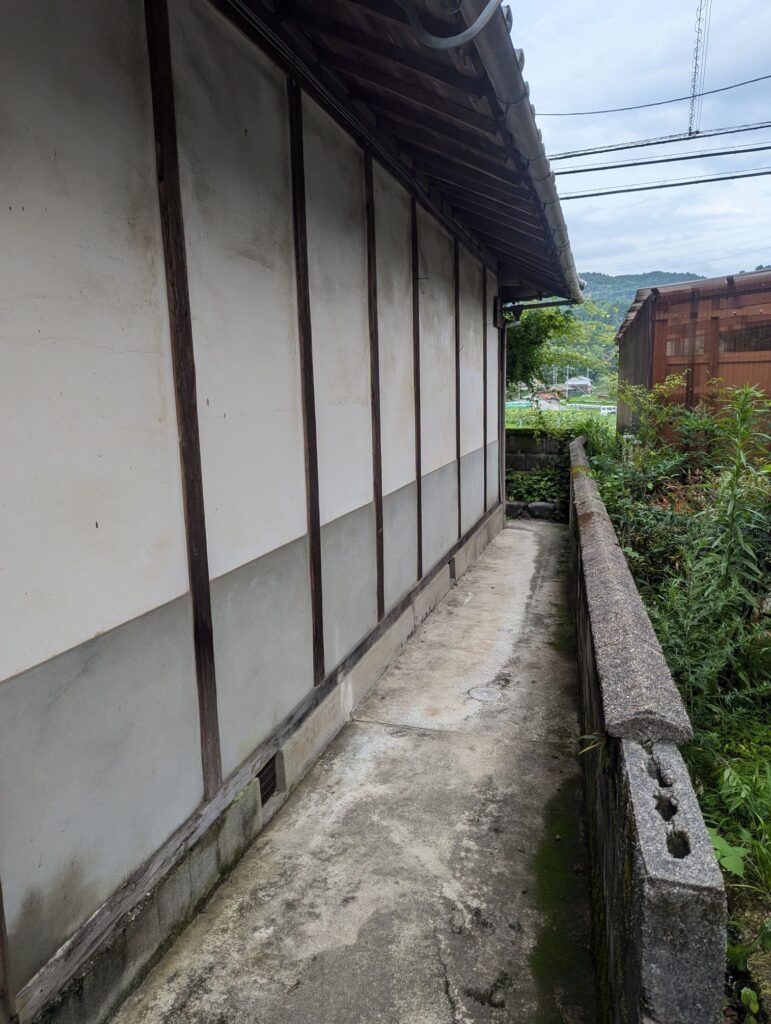
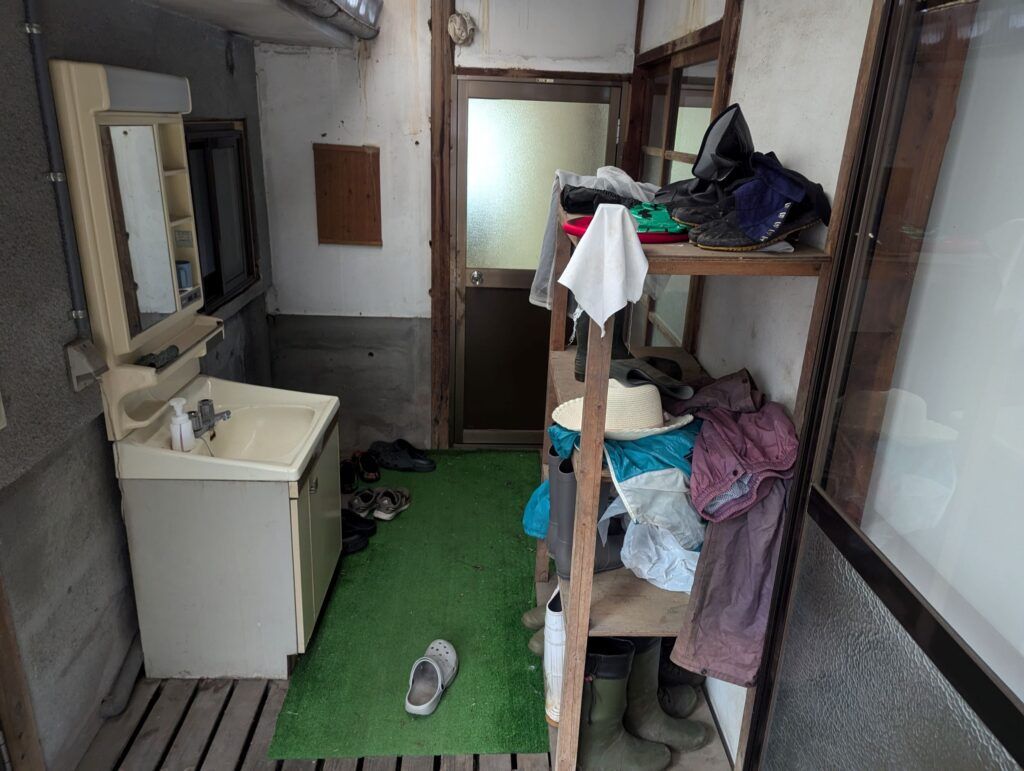
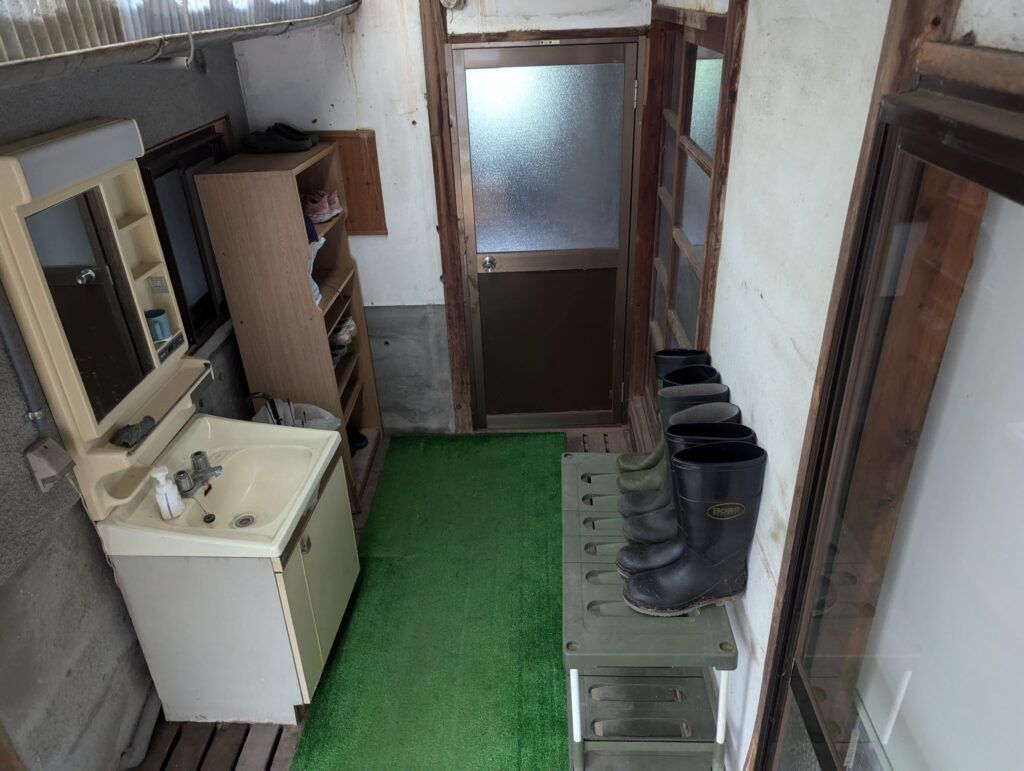
Next up is the staff entrance to the office building. The Merriam-Webster definition of bottleneck is “someone or something that slows or halts free movement and progress”. In this instance, the culmination of several dynamics qualify this area as at least having its own personality for better or worse (it’s for the worse, I promise). Pictures don’t do it justice. The chaos in this area takes the form of an explosion of Crocs owned by a group of people who seem to have more left feet than right feet, a dilapidated shelf which is meant to house said crocs, but acts instead like a drunken traffic conductor who is impeding travel. Adding to the ambiance of this are some exterior doors which were presumably attached to a building at one point, disintegrating brooms from the Meiji period, huddles of broken umbrellas, and secret recycling bins hidden under a small mountain of moldering rainboots and terminally sunbleached tabi shoes which are happily and patiently awaiting the final expansion of the universe.
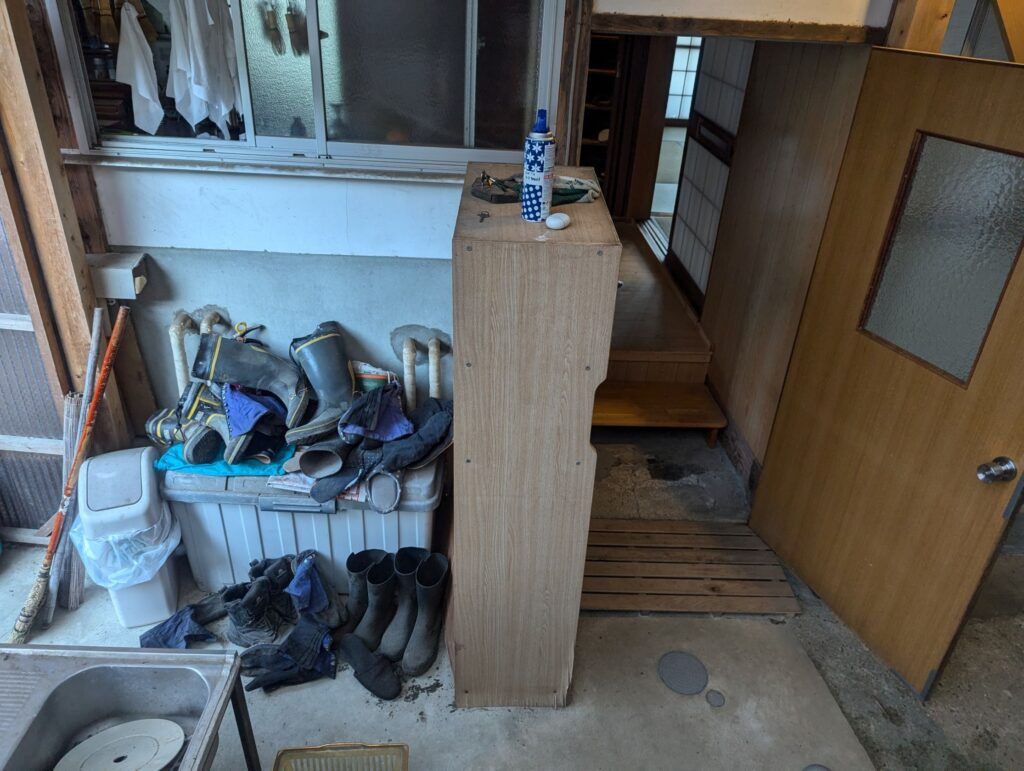
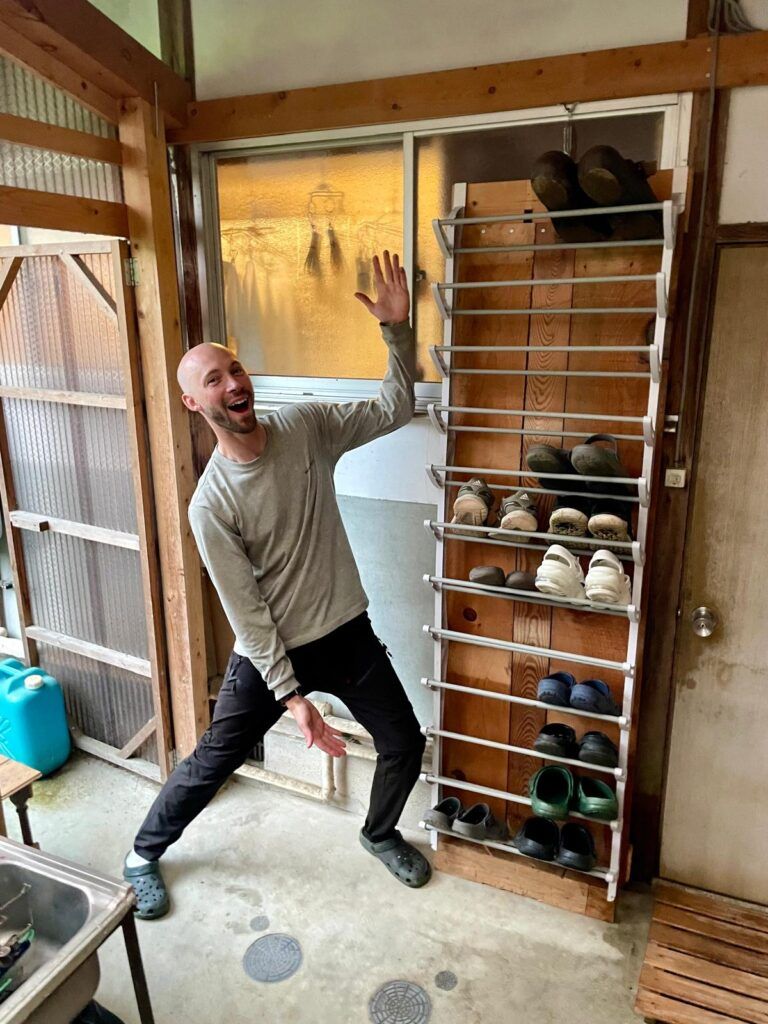
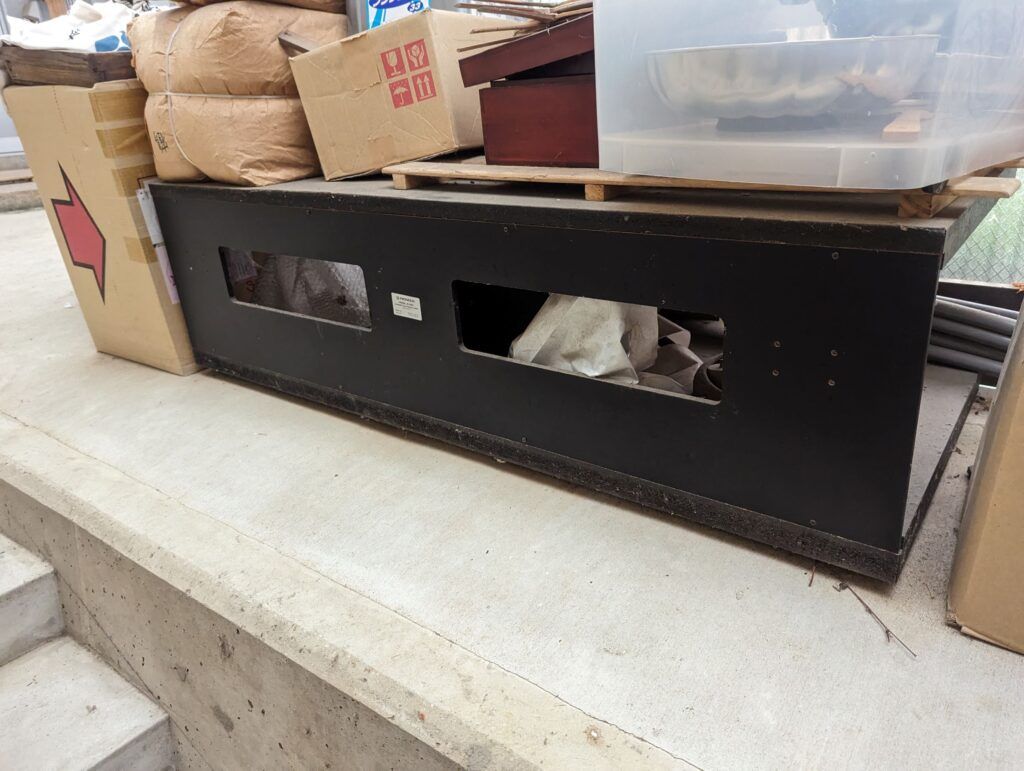
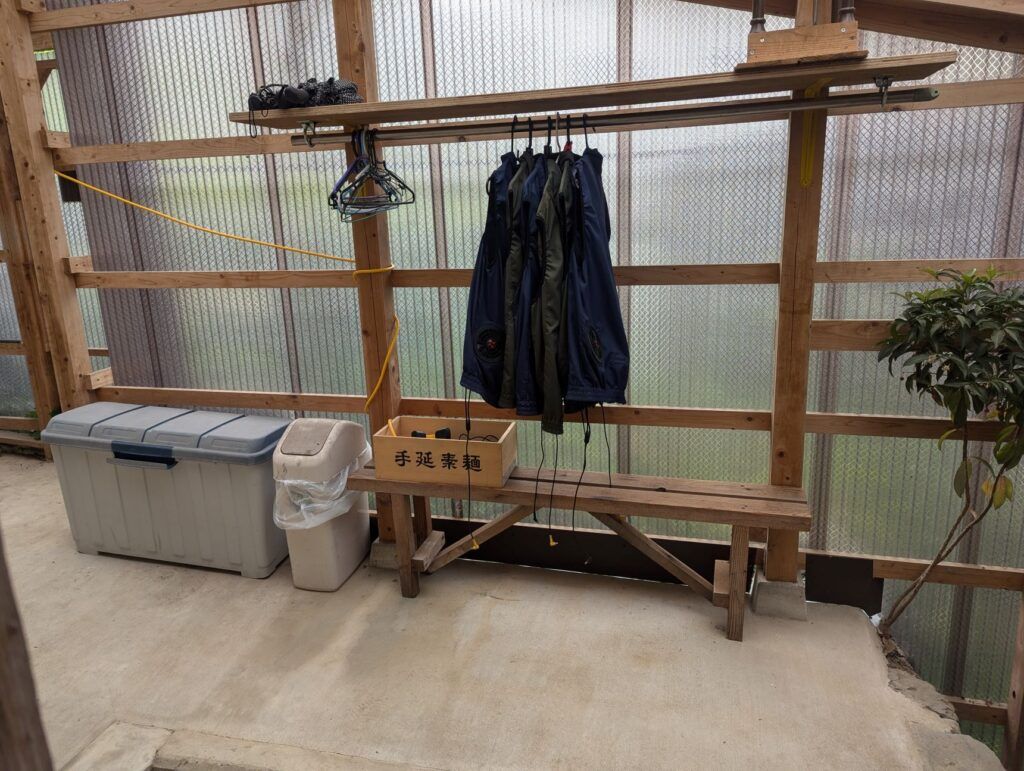
Looking, at last, to our final boss – I struggle to put this space into words. It’s a public-facing space which we can only assume was intended to temporarily house recycling and trash that, for one reason or another, could not be disposed of normally. It’s safe to say that this concept has fully collided with a vision of communal storage space for farming and rain gear. In the interest of both your sanity and mine, I’m not going to list the plentiful reasons why this would not and did not work. Suffice to say, the result was a big ugly mess. Also, organizing this space featured the added hurtle of governmental bureaucracy in regards to fluorocarbons in a defunct Bert and Ernie duo of refrigerators. Sorry boys, if I’m not permitted to deteriorate evermore at Obubu, I don’t see why you should be. Hilarious jokes aside, it’s not an easy task to manage a public-facing space which houses rubbish. I sure as hell gave it a shot though.
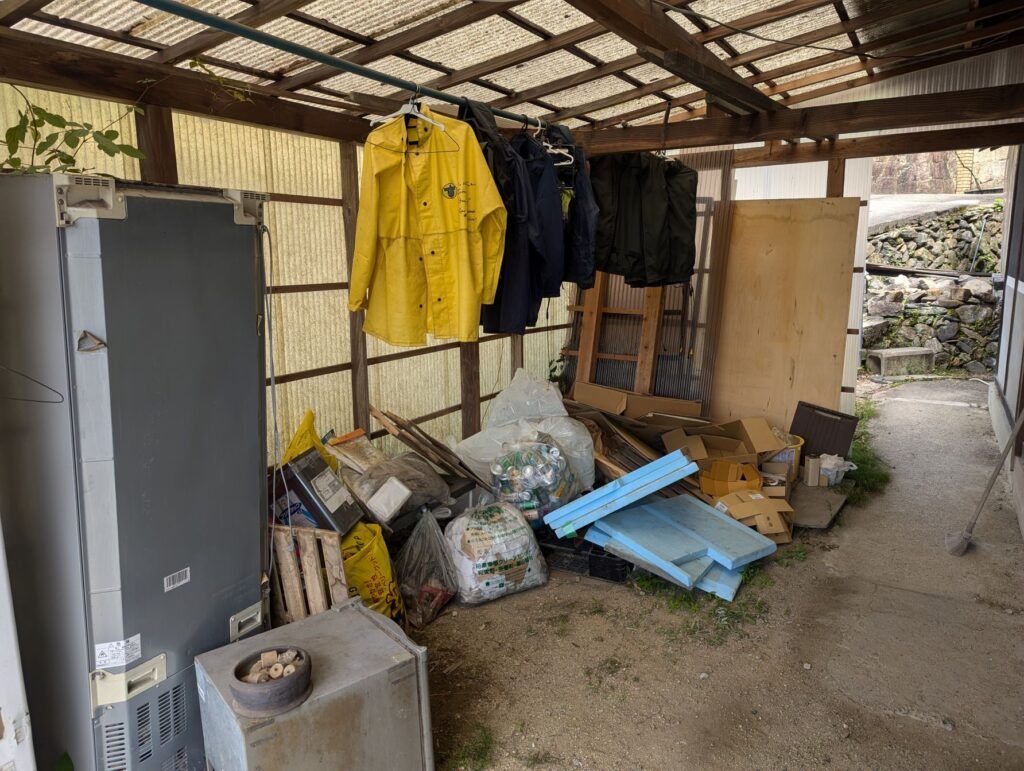
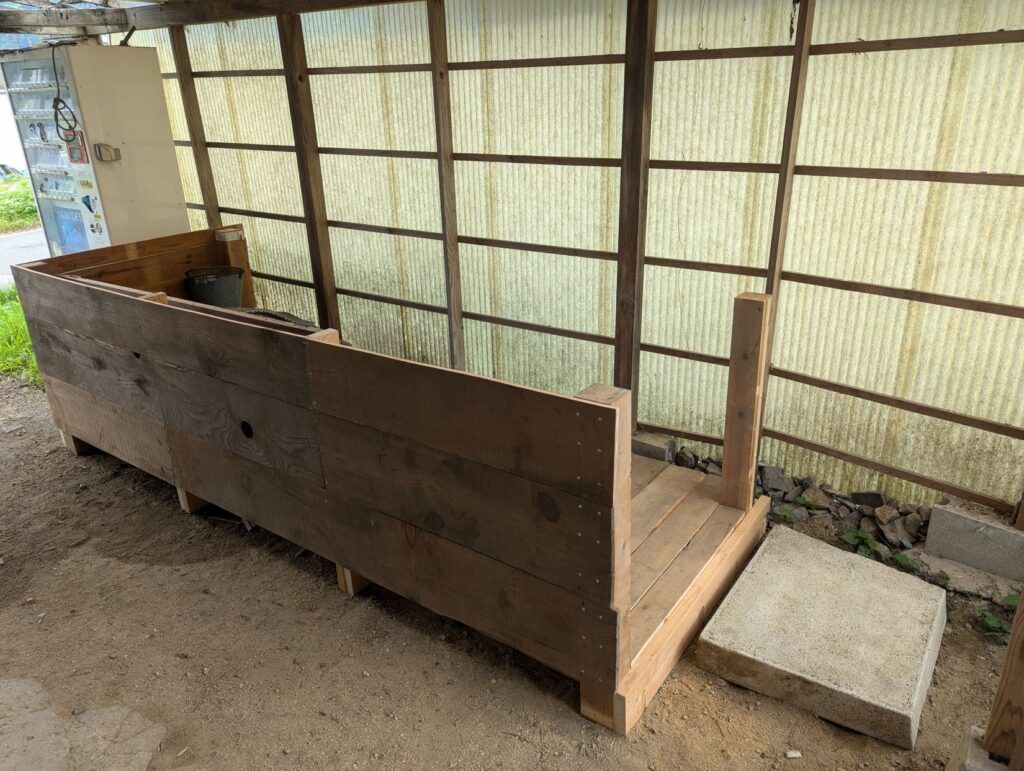
I picked a project that is practical but also ongoing. Organizing an ever-growing environment like Obubu-san isn’t a determinate task, it’s a perpetual one. My goal was just to reset a couple spaces that were crying out for help. Originally I had intended my personal project to be a roasted oolong, or a smoked wakoucha, or something in the realm of tea but everyday as I walked by these spaces, they were just crying out for some love. Before I knew it, I was already sorting and allocating and scrubbing and vacuuming and pestering the staff with questions. I was in too deep and, in a manic attempt to rationalize my impulse to clean and organize things, I decided a practical project wasn’t less valuable than a tea-inspired project. So I think I’ll end with that being the moral of the story. I encourage my posterity to spend their precious time here doing what they think has value and meaning.

